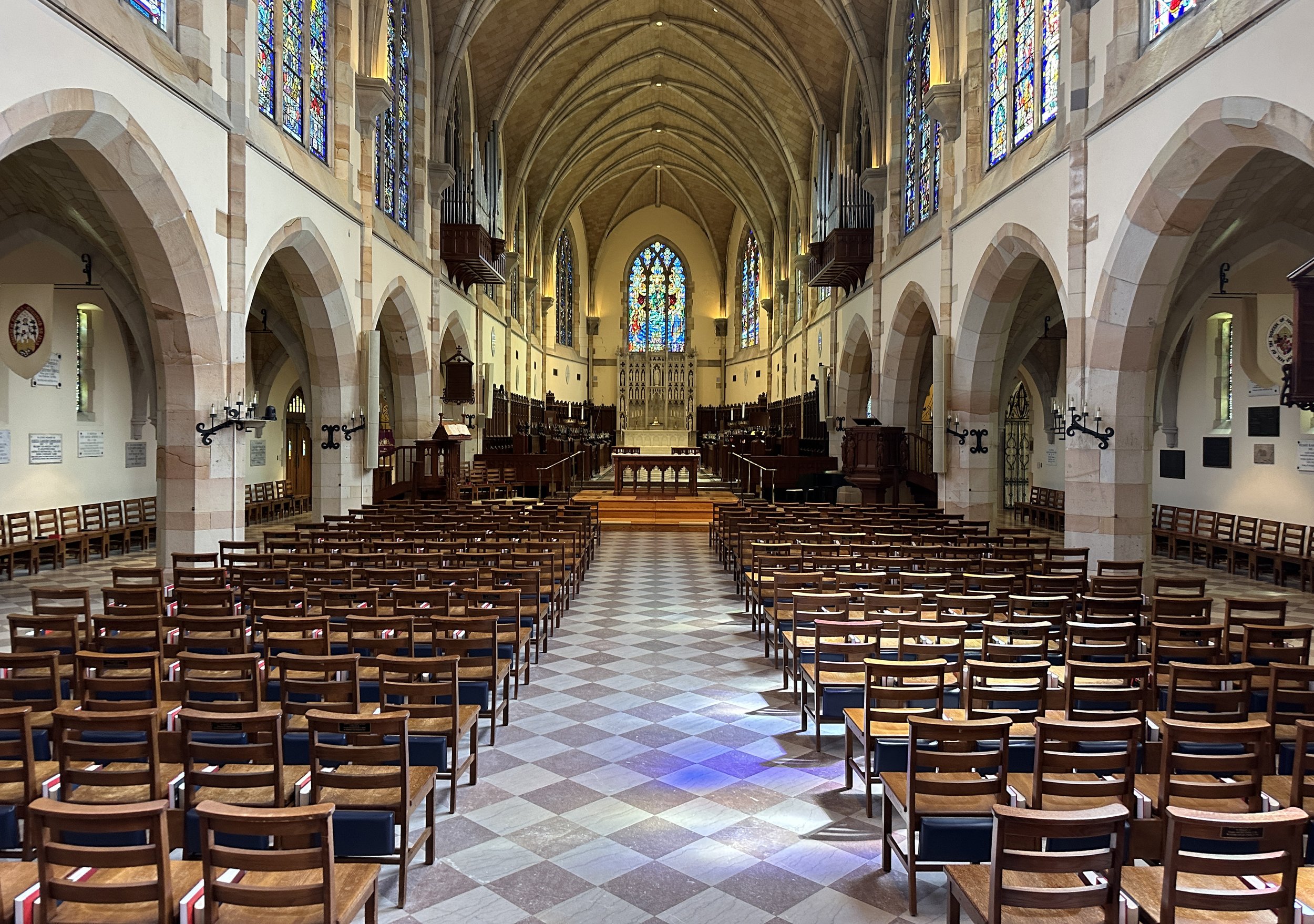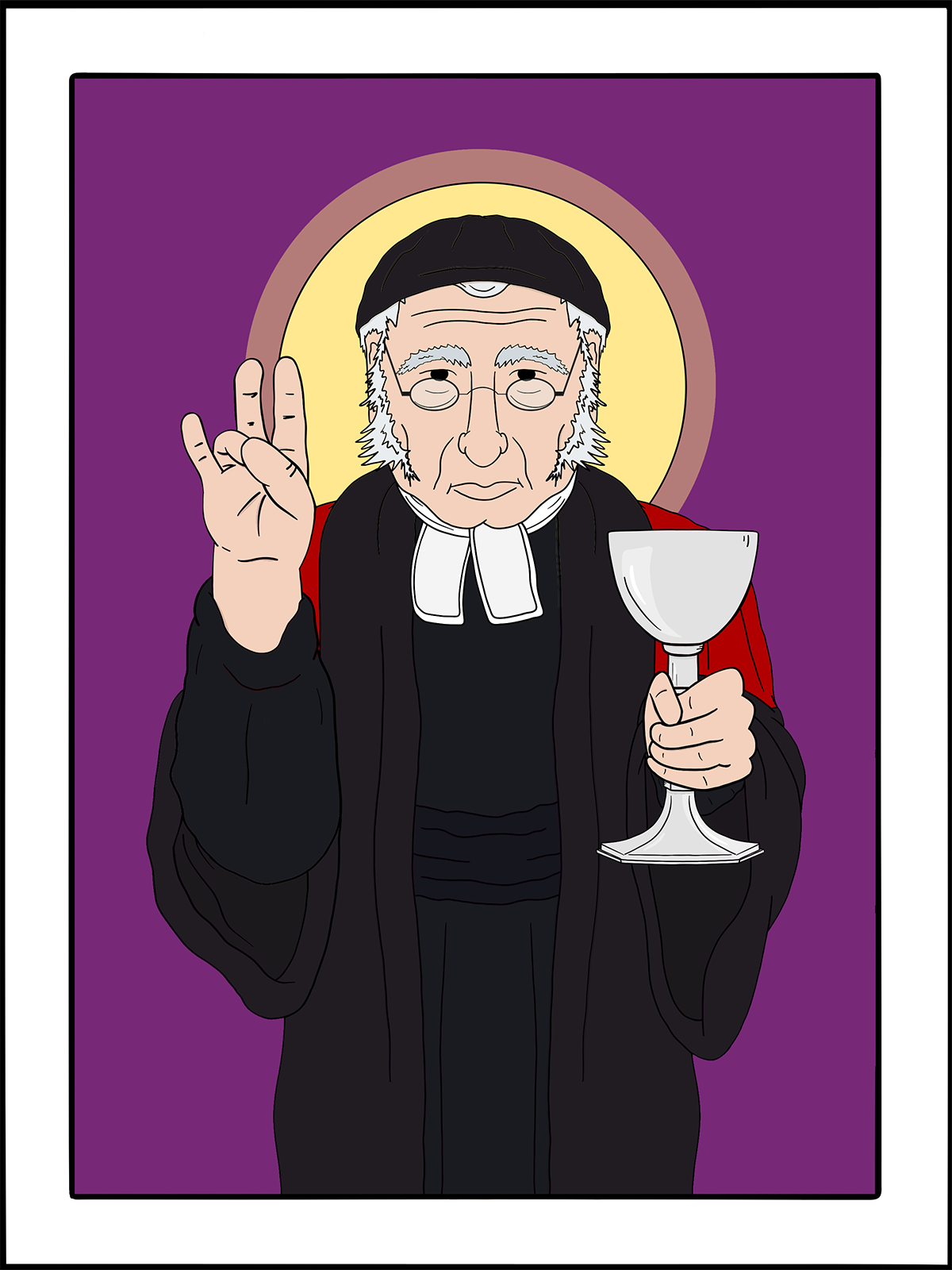
September 18
Edward Bouverie Pusey
Priest, 1882
art by Rev. Kirsten Kohr of Geneva, Ohio Grant, O God, that in all time of our testing we may know your presence and obey your will; that, following the example of your servant Edward Bouverie Pusey, we may with integrity and courage accomplish what you give us to do, and endure what you give us to bear; through Jesus Christ our Lord, who lives and reigns with you and the Holy Spirit, one God, for ever and ever. Amen.
The revival of High Church teachings and practices in the Anglican Communion, known as the Oxford Movement, found its acknowledged leader in Edward Bouverie Pusey. Born near Oxford on August 22, 1800, Pusey spent all of his scholarly life in that University as Regius Professor of Hebrew and as Canon of Christ Church. At the end of 1833, he joined John Keble and John Henry Newman in producing the Tracts for the Times, which gave the Oxford Movement its popular name of Tractarianism.
His most influential activity, however, was his preaching—catholic in content, evangelical in his zeal for souls. But to many of his more influential contemporaries, it seemed dangerously innovative. A sermon preached before the University in 1843 on “The Holy Eucharist, a Comfort to the Penitent” was condemned without his being given an opportunity to defend it, and he himself was suspended from preaching for two years—a judgment he bore patiently.
His principles were thus brought before the public, and attention was drawn to the doctrine of the Real Presence of Christ in the Eucharist. The revival of private confession in the Anglican Communion may be dated from another University sermon, on “The Entire Absolution of the Penitent.”
When John Henry Newman was received into the Roman Catholic Church in 1845, Pusey’s adherence to the Church of England kept many other Anglicans from following, and he continued to defend the teachings and practices of the Oxford Movement as a legitimate expression of the Church of England.
After the death of his wife in 1839, Pusey devoted much of his family fortune to the establishment of churches for the poor and much of his time and care to the revival of monasticism. His own daughter, Lucy, had longed to serve the church as a religious sister. While she died too young for her dream to be realized, Pusey dedicated himself to reviving the religious life for women so that other women would be able to respond to that sense of call even though his own daughter could not. In 1845, he established the first Anglican sisterhood since the Reformation. It was at this community’s convent, Ascot Priory in Berkshire, that Pusey died on September 16, 1882. His body was brought back to Christ Church and buried in the cathedral nave. Pusey House, a house of studies founded after his death, perpetuates his name at Oxford University.
Excerpted directly from “Lesser Feasts and Fasts 2022,” p. 416-417.

